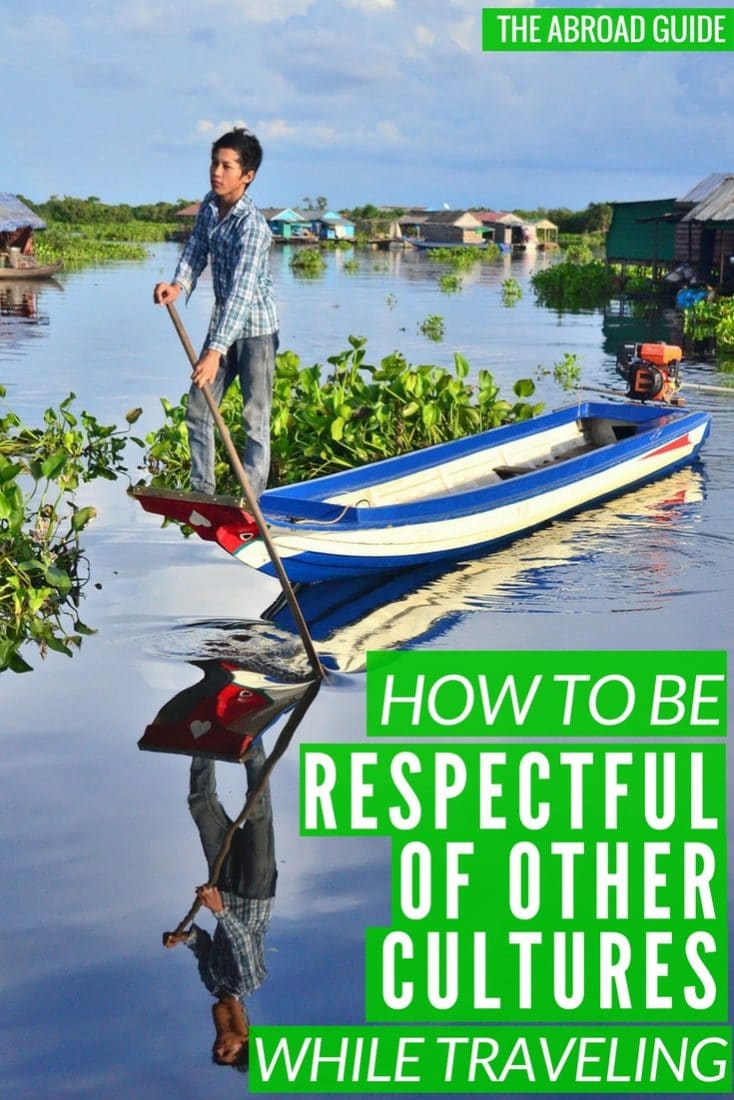Traveling to a new country or region can be exciting and eye-opening. As you explore new sights, sounds, and experiences, you’re sure to encounter customs and traditions that are different from your own. Cultural travel can be one of the most enriching experiences of your life, but it’s important to approach it with respect and an open mind.
Here are some dos and don’ts to keep in mind when you’re traveling to a new culture:
Do: Research the Culture Before You Go
One of the best ways to be respectful of a new culture is to learn about it before you even arrive. Read up on the country’s history, traditions, and customs, and try to gain an understanding of the local way of life. This will not only help you be a more informed traveler, but it will also show the locals that you’re interested in their culture and eager to learn.
Don’t: Assume Your Culture Is Superior
It’s easy to fall into the trap of thinking that your way of life is the “right” way. However, this kind of thinking can lead to cultural misunderstandings and offense. Instead, approach the new culture with an open mind and a willingness to learn from the locals. Remember, there’s no one “right” way to live, and every culture has something valuable to offer.
Do: Dress Appropriately
Different cultures have different norms when it comes to dress, and it’s important to respect these customs. Research the dress code for your destination before you go, and pack accordingly. If you’re unsure about what’s appropriate, it’s always better to err on the side of caution and dress more conservatively.
Don’t: Disrespect Religious Sites or Traditions
Religion can play a big role in many cultures, and it’s important to be respectful of these traditions. If you’re visiting a religious site, dress appropriately and follow any rules or customs that are in place. Avoid taking photos or behaving in a way that could be seen as disrespectful.
Do: Learn Some Phrases in the Local Language
Even if you’re not fluent in the local language, learning a few key phrases can go a long way in showing respect and building connections with locals. Try to learn basic greetings, polite phrases, and any important words or phrases you might need for your trip.
Don’t: Expect Everyone to Speak Your Language
While it’s helpful to learn some phrases in the local language, it’s important to remember that not everyone will speak your language. Don’t get frustrated if you’re having trouble communicating – instead, try to find other ways to connect with locals, such as through gestures or shared experiences.
Do: Be Open to New Experiences
Cultural travel is all about stepping outside of your comfort zone and experiencing new things. Try new foods, attend local festivals, and participate in cultural activities whenever possible. By being open to new experiences, you’ll gain a deeper understanding and appreciation of the culture you’re visiting.
Don’t: Be Disrespectful or Disruptive
Being disrespectful or disruptive to a culture or its people is a surefire way to create tension and possibly harm your safety. It’s essential to understand that cultural differences exist and that they should be respected. Here are some things you should avoid doing:
Learn some key phrases in the local language
Even if you’re not fluent in the local language, learning some key phrases can go a long way in showing respect and making connections with locals. Simple greetings like “hello,” “thank you,” and “please” are always appreciated, as are phrases related to ordering food, asking for directions, and making small talk.
Dress appropriately
In some cultures, modest dress is important and showing too much skin or wearing revealing clothing can be seen as disrespectful. Do some research on the local customs and dress appropriately for the culture you’re visiting.
Be open-minded and respectful
Above all, being open-minded and respectful is key to having a positive cultural travel experience. Remember that you are a guest in someone else’s culture, and that their customs and ways of life may be different from your own. Embrace these differences and learn from them, rather than judging or dismissing them.
Avoid touching someone’s head in Buddhist countries, as it is considered the most sacred part of the body.
Don’t speak loudly or use profanity in public places.
Avoid public displays of affection in conservative countries.
Don’t wear revealing clothing in conservative areas.
Avoid haggling over prices aggressively, as it can be seen as insulting.
Don’t take photos of people without their permission, especially in religious sites.
Avoid eating or drinking in public during Ramadan or other fasting periods.
It’s important to research the customs and traditions of the destination you’re traveling to so you can understand the cultural norms and avoid being disrespectful or disruptive.
Conclusion
Cultural travel can be a transformative experience that broadens your horizons and opens your mind to new ways of thinking. By following the dos and don’ts of cultural travel, you can show respect to the people and traditions of the places you visit, leading to a more enriching and fulfilling travel experience. Remember to be open-minded, curious, and respectful, and you’ll create lasting memories while gaining a deeper understanding of the world and its diverse cultures.
In conclusion, cultural travel can be an incredibly rewarding and enriching experience, but it’s important to approach it with an open mind and a respectful attitude. By doing your research, being aware of local customs and etiquette, and making an effort to connect with locals, you can gain a deeper understanding of the world and the people who inhabit it. Happy travels!




